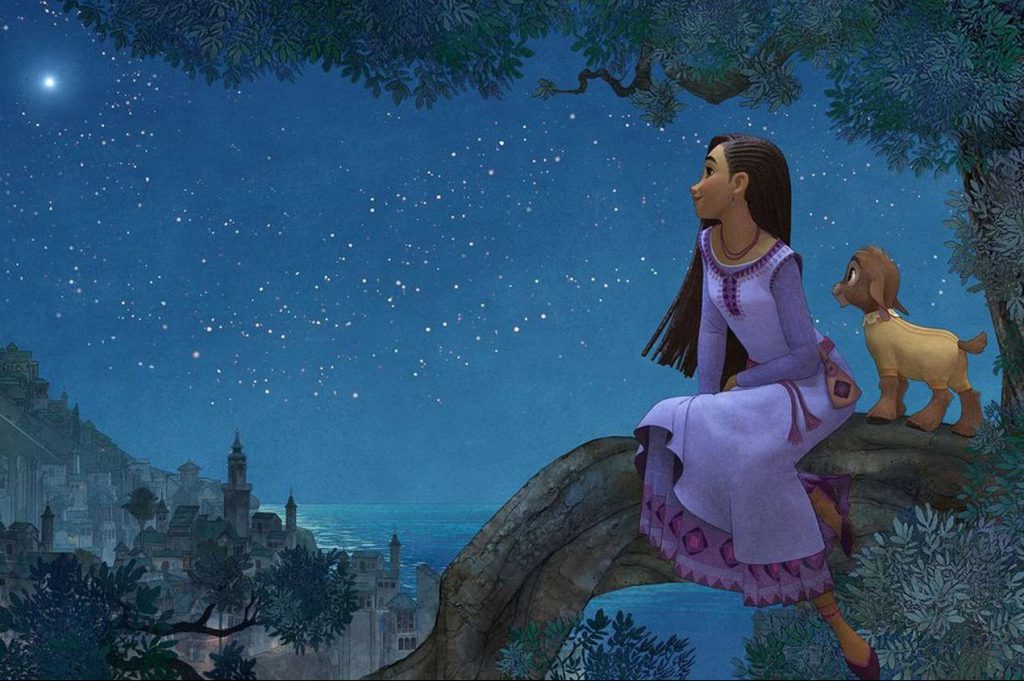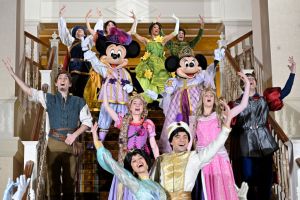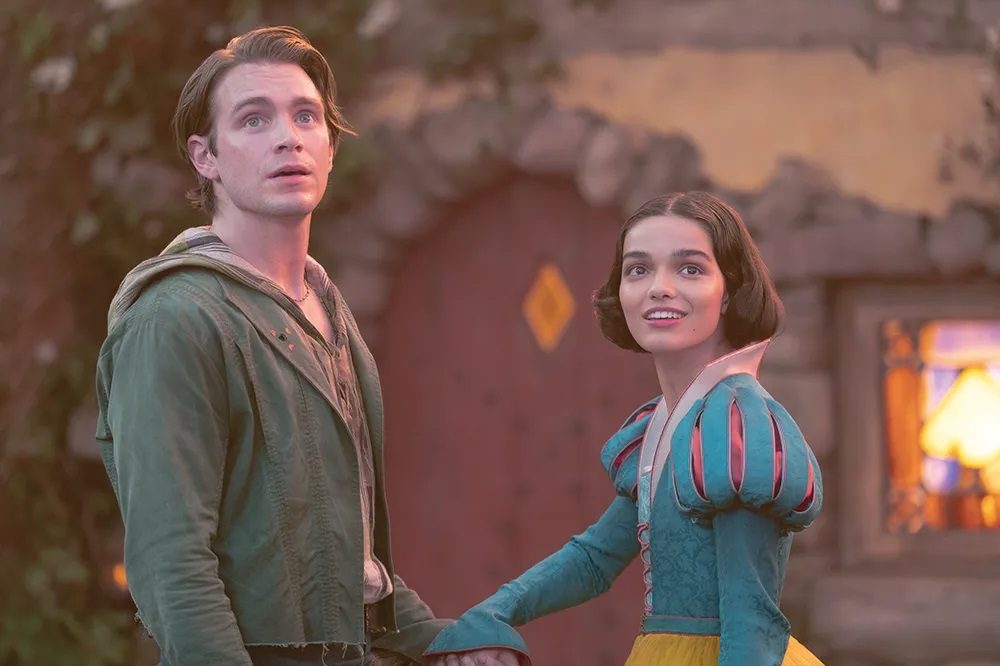Did you see Wish last weekend? Chances are, according to the box office receipts, you didn’t. The latest big-budget Disney extravaganza, with the voices of Ariana DeBose and Chris Pine, was expected to be a hit, grossing a decent $50 million on its opening weekend. Instead, to the studio’s chagrin, it came in third with a comparatively measly gross of $31.7 million, bested not only by the second weekend of the Hunger Games prequel, The Ballad of Songbirds and Snakes, but, considerably more surprisingly, Ridley Scott’s Napoleon, which soared past early estimates to come in with an impressive $32.5 million. Not bad for a film without any bankable movie stars (sorry, Joaquin), mixed reviews, a B- CinemaScore rating and a subject with which American audiences are not intimately familiar.
The failure of Wish, then, is almost as great a downfall as that suffered by the Emperor Bonaparte himself. Those involved in its production will no doubt find themselves exiled to the studio equivalent of St. Helena, there to wait out their remaining days in ignominy. It isn’t as if Wish is a complete artistic failure, either, although its backward-looking, self-referential approach didn’t endear it to critics, who gave it a damning 50 percent aggregate on Rotten Tomatoes. Instead, it’s yet another example of focus-grouped, play-it-safe un-adventurousness by the so-called House of Mouse, following on from the similarly lamentable Elemental early in the year.
Excuses have already been made by the soon-to-be-exiled execs. “The actors’ strike made publicity impossible.” “Elemental was a sleeper hit that ended up making nearly half a billion.” “Families are waiting for Disney+ these days.” Etc., etc. Yet the involvement of Frozen’s Jennifer Lee as Wish’s screenwriter can only remind Disney that they haven’t had a mega-success since the Frozen sequel in November 2019, and that, perhaps far from coincidentally, was the exact date that their streaming service debuted. Since then, the likes of Encanto might have had songs that have gone viral, but the films themselves are screening to smaller and smaller audiences, while most families are, indeed, content to wait a few months for the movies to arrive on their televisions at home.
This isn’t so far from what Apple have done with Napoleon and Killers of the Flower Moon, namely using the theatrical release as a preview for what will eventually be a prestigious part of their Apple TV+ service. If the films go into profit at this point, great, but that’s hardly the sole intention. And, besides, Apple is the largest and most profitable corporation in the world. Disney, for all of its rapacious acquisition of other companies, has to make its money in a variety of ways, and people going to see their films in theaters — as well as streaming them on Disney+, or paying a fortune to go to their theme parks — is an essential part of their current business model.
Is it curtains for Disney and its increasingly embattled CEO Bob Iger, after the let-down of Wish and the utter failure of The Marvels? Probably not. There will be a can’t-miss Frozen sequel, or two, round the corner. And it’s more likely than not that fan-favorite characters like Iron Man and Black Widow will be returning in some multiverse jiggery-pokery to give the Marvel series a shot of familiarity amid the growing suspicion that audiences don’t especially care about Captain Marvel, Kang the Conqueror and the like. The Star Wars series, which has largely pivoted to streaming, will surely produce another big-budget film in the next few years, once it’s been decided who will be the guiding force behind it, and Pixar remains a force to be reckoned with, even if its glory days are behind it.
Disney is by no means finished. Yet nor does it occupy the place in popular culture that it once did, where its every new release is a must-see. The recent, profitable trend for live-action adaptations of their most popular animated films is grinding to a halt, due to lack of material, and if you’re excited about Mufasa: The Lion King, then all I can say is that I’m very happy for you. What the company now needs is someone visionary, a Walt for the twenty-first century who will rise to the occasion of creating genuinely ground-breaking family films that make audiences want to head out to the theater again rather than shrug and say “I’ll wait for streaming.” But as long as Iger, Kathleen Kennedy and co. remain in place, such an outcome is extremely unlikely. Pinocchio may have wished upon a star, but the rest of us will be wishing for something quite different — and, alas, equally unattainable.






















Leave a Reply